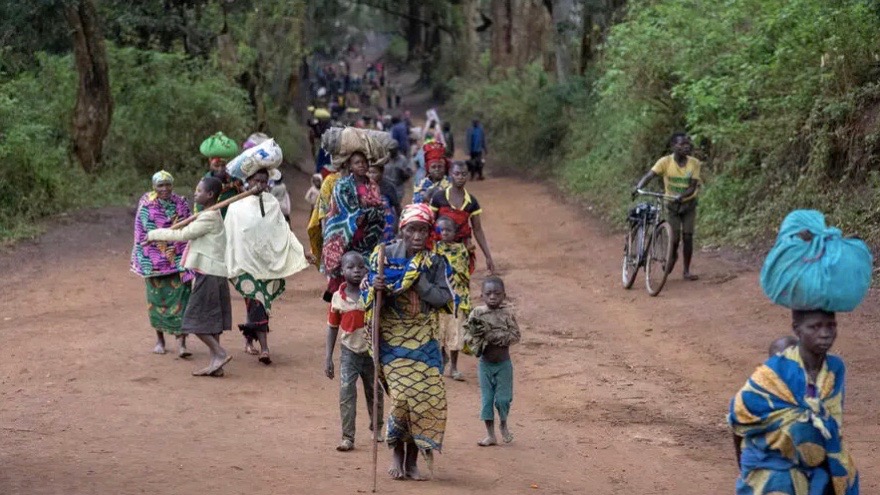Due to fresh displacement caused by the outbreak of conflict in Sudan, the total number of forcibly displaced people reached a record 110 million by the end of May this year, said Filippo Grandi, head of the United Nations High Commission for Refugees (UNHCR), while releasing this year’s report on Forced Displacement on Wednesday, June 14.
According to the report, around 19 million more people were forcefully displaced in 2022—the biggest annual jump in the history of the UNHCR—taking the total number of forcibly displaced people in the world to 108.4 million by the end of last year.
The report notes that the total number of displaced people globally has grown rapidly since 2011 after remaining stable for almost 20 years at 40 million. The number of refugees started increasing after a growing number of interventions in developing countries that gave rise to fresh conflicts, as well as due to the increasing number of climate catastrophes.
The report claims that today, one in every 74 people is displaced due to reasons ranging from war and conflict to climate change.
The total number of displaced people includes both internally displaced people (IDP) and refugees. According to the report, people who are forced to leave their countries, or refugees, make 37.5% of all forcibly displaced people across the world, which translates to over 35 million people. The rest are IDPs.
Almost half of the refugees came from just three countries: Syria, Ukraine, and Afghanistan. Ukraine accounted for the largest number of refugees last year. Over 5.7 million Ukrainians were forced to become refugees, the largest figure since World War II, as per the report. Another 5.9 million Ukrainians are IDPs.
West’s reluctance to fulfill its humanitarian commitments
The report claims that despite some positive signs from countries such as Kenya where the state is taking steps to better accommodate refugees, most of the countries, particularly in the rich and developed world, have shown a growing reluctance to accept refugees.
Grandi noted that there is a growing number of countries, especially the rich and developed, where anti-immigrant rhetoric, policies, and laws have been adopted. These include the UK, Hungary, and Poland.
“We see increasingly a reluctance on the part of states to fully adhere to the principles of the (1951 refugee) convention, even states that have signed it,” Grandi told Reuters.
The report notes that contrary to the rhetoric of refugees flooding Europe, the majority of them (over 76%) are being hosted by middle or low income countries, “with 46 least developed countries accounting for less than 1.3% of global gross product hosting more than 20% of all refugees.”
The report also notes that though a record 339,300 refugees returned to their home countries in 2022 and 114,300 were settled in third countries, which is twice the number than 2021, there is more that needs to be done to address the pain of refugees and reduce the number of those displaced.





